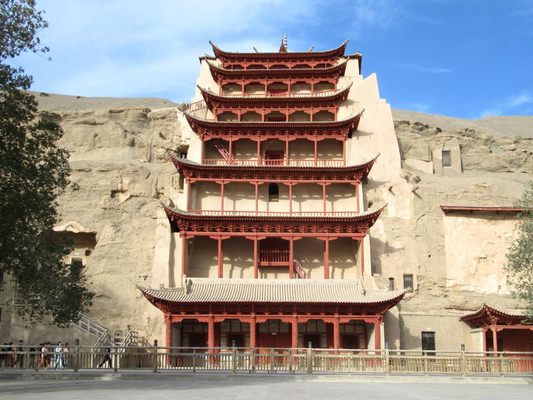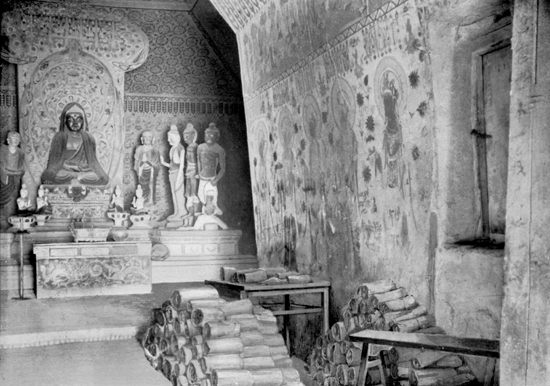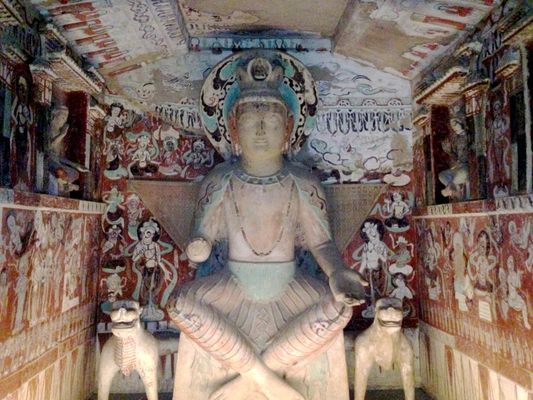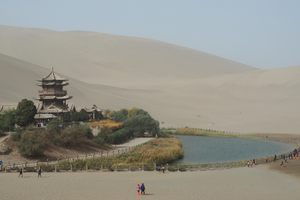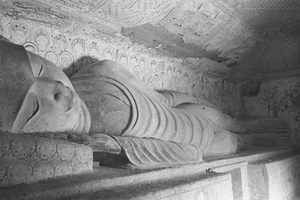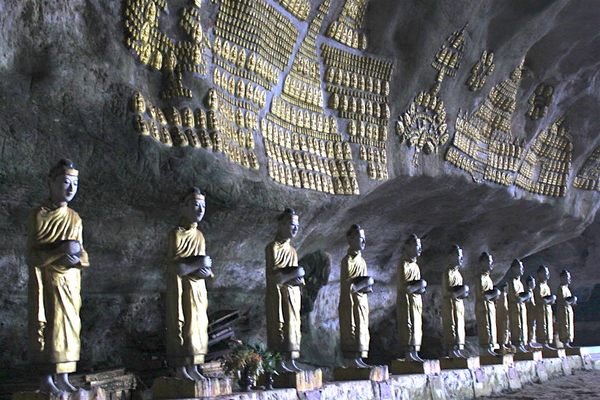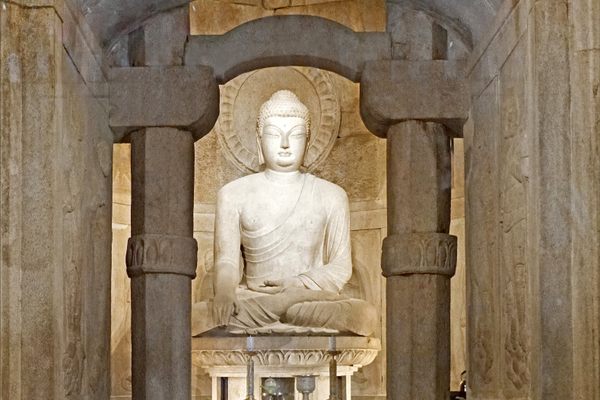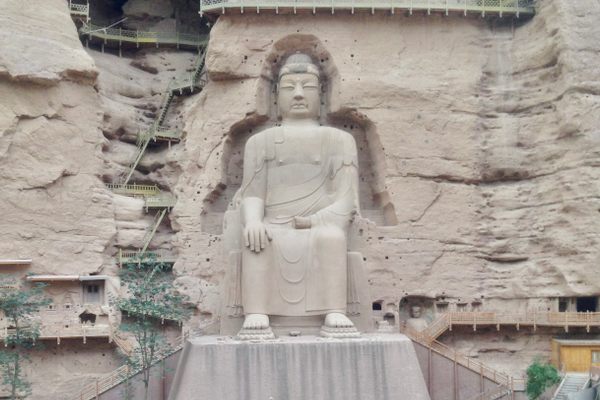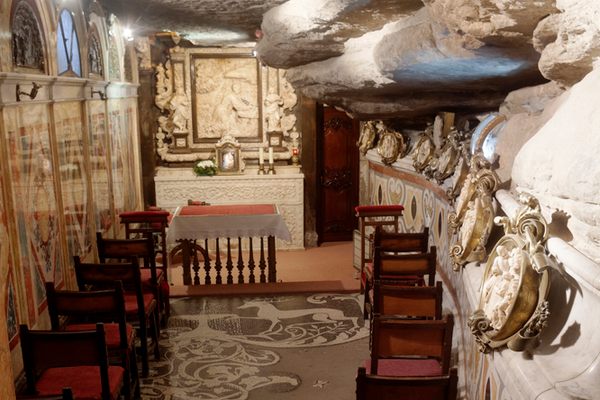About
Tucked away in a disused section of the Silk Road on the edge of the Gobi Desert, this place managed to stay under the radar for centuries. Along a one-mile long trail of cliffs beside the Dachuan River are the Mogao Caves, a complex of human-made caves and cells that preserve Buddhist statues and paintings spanning a whole millennium, from the fourth to the 14th centuries. A total of 492 of these caves have survived the test of time.
The caves house more than 2,000 statues and more than 480,000 square feet of murals, all created by monks. A keen eye will notice a fusion of different artistic influences, with hints of Roman, Indian, Persian, Turkic, Mongolian, and Tibetan traditions behind the more prominent Han Chinese style.
Each and every cave has its own artistic merits, but taken as a whole, they showcase the evolution of Buddhist art in the region. Many murals go beyond the religious theme and incorporate more mundane scenes, with valuable information about the political, economic, and cultural context of the time. Among the worldlier depictions are a camel pulling a cart and farmers at work.
Although the murals are in the caves, they were not painted on naked rock. The surface was covered with mud, straw, and reeds, which were commonly used for construction, and an additional layer of lime. The statues, on the other hand, are made of wood, straw, reeds and plaster. These are all easily perishable materials, and they likely survived due to the caves’ remoteness.
Part of this complex of caves and cells is also a library (Cave 17) that in addition to Chinese texts, also houses Tibetan, Turkic, and Hebrew documents. Unfortunately, most of the 50,000 documents found in the library were readily sold to foreign (mostly Western) hands. The most valuable of these was the Diamond Sutra, one of the oldest printed books in existence (now at the British Library in London).
Related Tags
Know Before You Go
The Mugao Caves are a fast taxi ride from the center of Dunhuang.
Published
December 6, 2018
